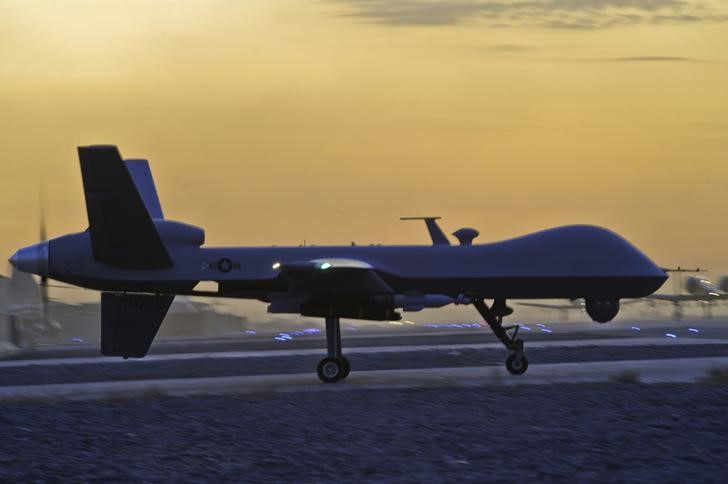



An indigenous Nigerian firm, Elites Group of Companies, has partnered with foreign Original Equipment Manufacturers (OEM) to establish a local assembly and production line for Unmanned Vehicles (UAVs), drones, and other security equipment within Nigeria [e24826b9]. The initiative aims to address security challenges, stimulate economic growth, and reduce delivery time for drones. By producing these security equipment locally, Nigeria can reduce its dependence on imports and strengthen its self-sufficiency. This move not only contributes to the economic growth of the country but also creates job opportunities for Nigerians. The partnership with foreign OEMs allows the Nigerian firm to leverage their expertise and technology, ensuring the production of high-quality unmanned vehicles and drones. It also opens up opportunities for exports, enhancing foreign exchange earnings for Nigeria.
Level 4 drones, also known as autonomous drones, have the ability to perform complex missions and operate in challenging environments with minimal human supervision. They can make decisions autonomously, adapt to changing conditions, and carry out tasks without constant input from an operator. Level 4 drones can operate beyond visual line of sight (BVLOS), allowing them to fly long distances and operate in areas where direct human supervision is not possible. This opens up a wide range of applications, including infrastructure inspection, search and rescue missions, and precision agriculture. Regulatory bodies and organizations have developed guidelines and standards to ensure the safe operation of Level 4 drones. Private companies and government entities are investing in research and development to improve the autonomy and capabilities of Level 4 drones.
The establishment of a local assembly and production line for drones in Nigeria is a significant development for the country's manufacturing industry. It not only addresses security challenges but also contributes to economic growth and job creation. By reducing the delivery time for drones and enhancing local manufacturing capabilities, the initiative aims to meet the increasing demand for UAVs and create job opportunities for Nigerians. The partnership with foreign OEMs is crucial for the success of the assembly and production line, as it allows the Nigerian firm to leverage their expertise and technology. This partnership also opens up opportunities for exports, enhancing foreign exchange earnings for Nigeria. Level 4 drones represent a significant advancement in unmanned aerial vehicle technology. With their high degree of autonomy and ability to perform complex missions, these drones have the potential to transform various industries and open up new possibilities for aerial flights. As technology advances and regulations adapt, we can expect Level 4 drones to become an integral part of our future, bringing us closer to a world where unmanned flights become the norm [90cb09cf].
In addition to the local drone assembly and production line, the DJI Mavic 3 Enterprise is revolutionizing aerial imagery. The drone, equipped with advanced capabilities, including a maximum velocity of 72 km/h, a maximum altitude of 5,000 m, and a flight time of up to 31 minutes, allows for capturing aerial shots from unique perspectives. With its 4K, 12MP camera and DJI's OcuSync 2.0 technology, the Mavic 3 Enterprise provides a strong, low-latency signal up to a 5-mile radius. It can be controlled using a remote controller or DJI's mobile app, offering users the ability to draw flight paths and navigate with precision. The Mavic 3 Enterprise unlocks new realms of visual storytelling and encourages creativity [c20a40f1].
Autonomous drone startup Neros has raised $10.9 million in a seed round from Sequoia Capital [57ec2add]. The funding will be used to build a new factory and manufacture more drones to sell to Ukraine. Neros, founded by former professional drone racers Soren Monroe-Anderson and Olaf Hichwa, aims to capitalize on the demand for drones in the Russia-Ukraine conflict. The company has already designed, manufactured, and shipped drones to the battlefield in Ukraine within months of its launch. Neros plans to use the funding for hiring and scaling up production. The startup is also in conversation with the US Department of Defense about using its vehicles across the Army, Air Force, and special forces. Neros aims to be cost-effective and use non-Chinese supply chains to compete with Chinese drone makers in the Ukraine market. Sequoia Capital sees Neros as best designed in the world for their class and wants the company to source as much as possible from US and Western suppliers [57ec2add].